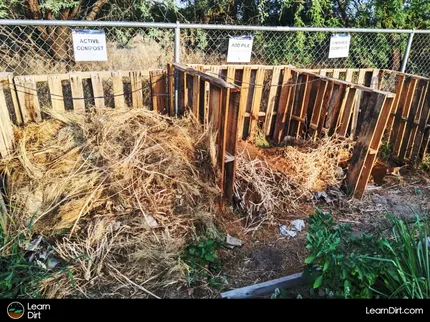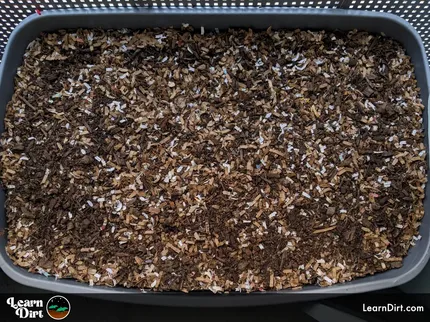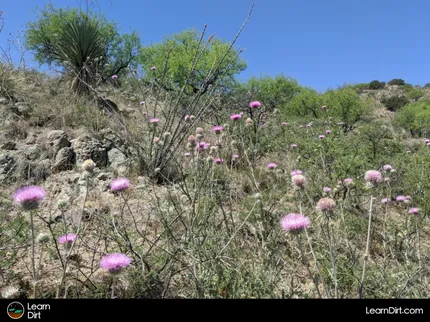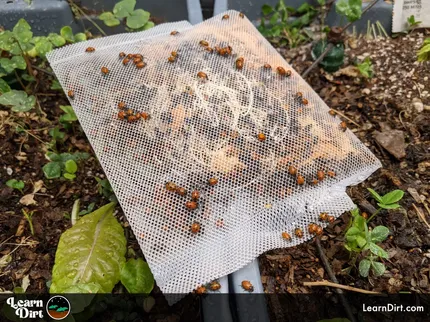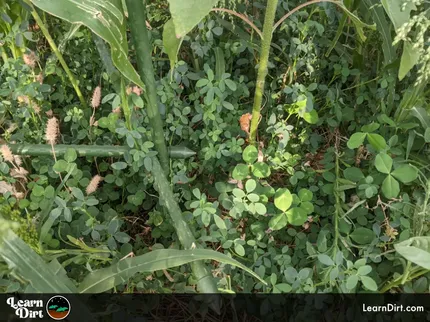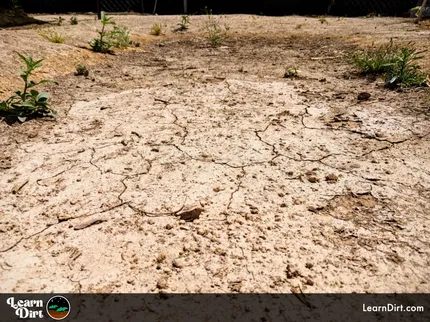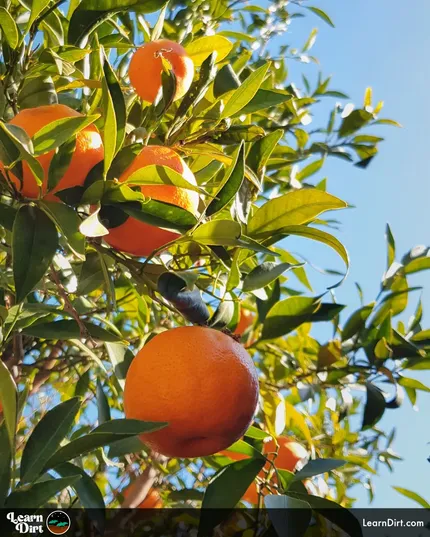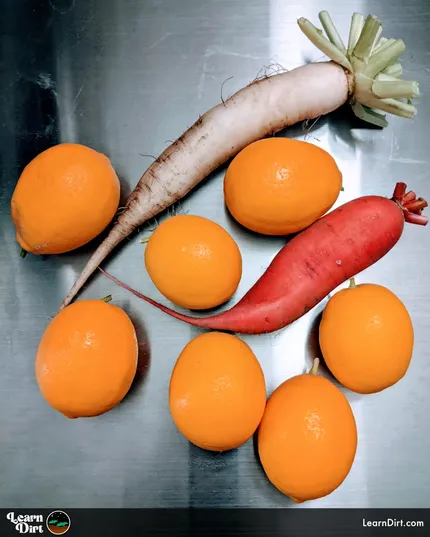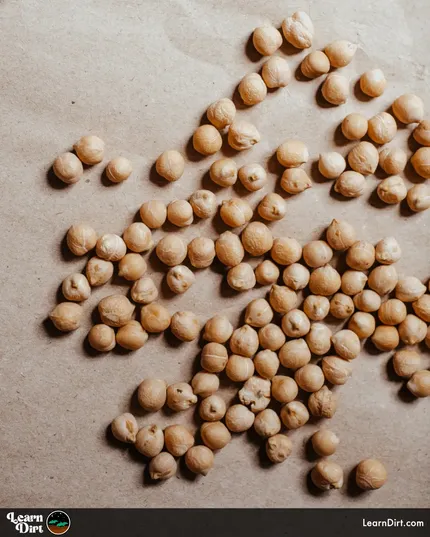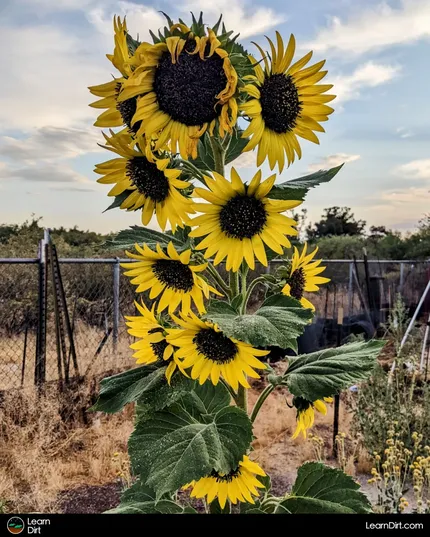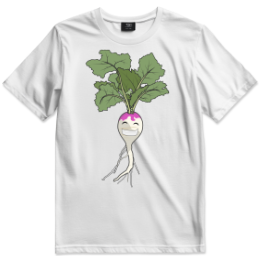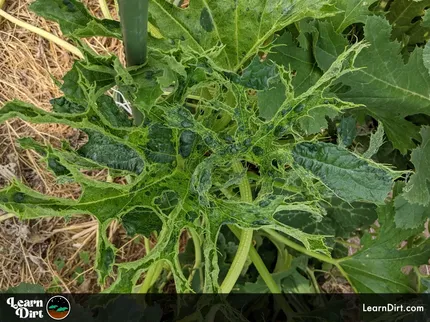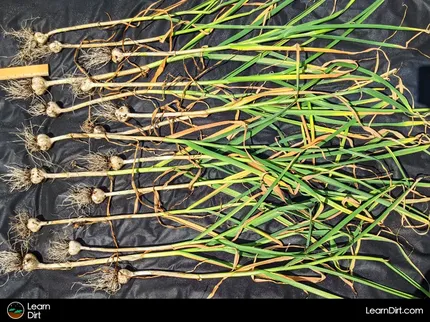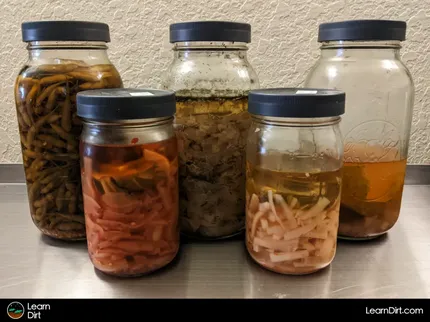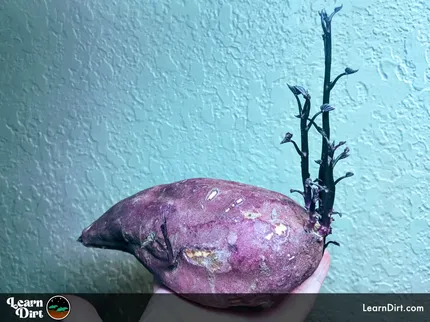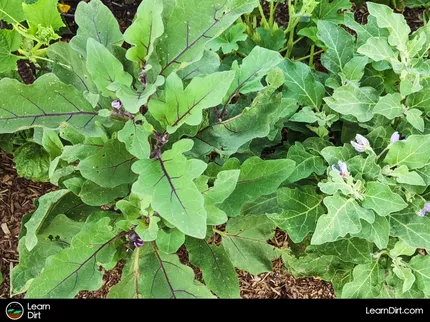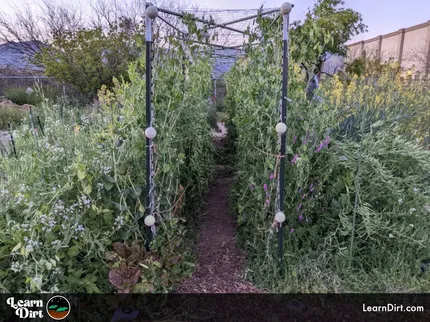Table of Contents
* Our articles never contain AI-generated slop *
If you're an organic gardener and are curious which cover crops will work best in Tucson, you're in the right place. And if you're in Zone 9a in a different location, this may give you some good ideas for your area as well.
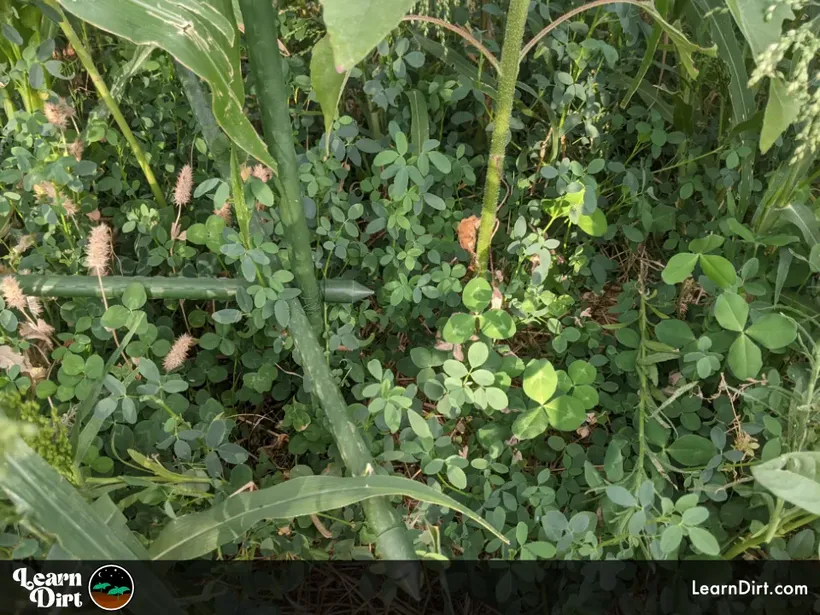
These were chopped and dropped every couple weeks to feed the soil
Why Use Cover Crops in Tucson?
Cover crops are all about soil health and soil remediation / regeneration.
If you're rusty on your cover crop knowledge, pause here and check out our Intro to Cover Cropping before continuing.
Disclaimer: This post may contain affiliate links. Refer to the privacy policy for more information.
Because the native soil in Tucson is of such poor quality, boasting <1% organic matter content and a pH which sometimes exceeds 9.0, improving the soil is crucial if you intend to grow anything other than native plants.
Cover crops offer the ways and means to regenerate the native soil and bring it up to a quality which will allow you to grow veggies, herbs, and fruits.
Cover crops also hold soil in place, so that nutrients aren't lost to monsoon flash flooding runoff and dust storm weathering - both common means of nutrient loss here in Tucson.
Which Cover Crops Can Grow in Tucson?
Because of the unique climate with its lack of water, extreme heat and sunlight, alkaline soils, and little raindall, Tucson is a difficult place for some crops to grow.
The following is an incomplete list of cover crops which I've found to grow well here in Tucson. This list is always changing, and I encourage suggestions over on the forum if you've had good experiences with cover crops that aren't on the list.
- Alfalfa
- Amaranth
- Buckwheat
- Chickpea
- Clover - Crimson, Red, or White
- Cowpea
- Fava
- Fenugreek
- Flax
- Millet
- Oats
- Pea - Sweet, Winter or Forage
- Quinoa
- Radish - Daikon, Oilseed, Tillage, or Forage
- Rye
- Sesame
- Sorghum
- Sorghum-Sudangrass
- Sudangrass
- Sunflower
- Sweetclover - Red, Yellow, or White
- Vetch
- Yellow Mustard
Thankfully many cover crops are much heartier than veggies are, and can generally be established in depleted soils where vegetables might not yet be able to grow.
Join The Grower's Community
Whether you cultivate vegetables, house plants, succulents,
mushrooms, flowers, cannabis, or more...
you're welcome here 🌱
Check It Out!
After improving the soil through chopping & dropping those cover crops, you can remediate it enough to eventually support thriving vegetable and herb gardens.
You'll find many of these cover crops overlap with the list of nitrogen-fixing cover crops, and can be used as a nitrogen input it your Tucson gardens or on your land.
Tucson Cover Crop Seasonal Guide
Here's a rough seasonal guide for what cover crops to plant during each season in Tucson:
While figuring out the seasonal timing for main crops, I also had to try cover crops at various times to see what covers can handle the heat and droughts, as well as which covers to grow during each season.
Cover crops are absolutely crucial to soil-building, so figuring out what the best cover crops for Tucson are and the timing for each was paramount to successful regenerative gardening here.
Consider growing cover crops alongside or underneath main crops to maximize your use of space and time.
Spring
The associated Tucson planting guides are:
Dry Summer
Anytime from May on until the monsoon rains come, I consider "dry summer", a good time for planting any of the following covers:
For more granular timing, check out the relevant monthly Tucson planting guides here:
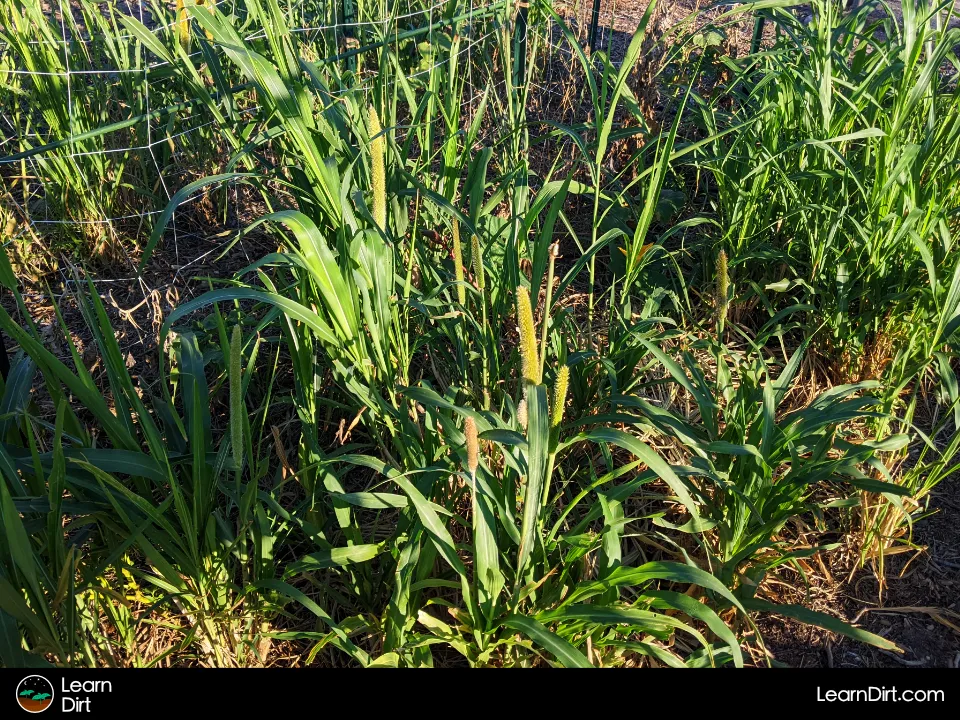
If you decide to grow alfalfa, we've got more info about using it as a cover crop here.
Monsoon
The Tucson planting guides for Monsoon are:
Autumn
- Clover
- Daikon Radish
- Fava
- Flax
- Oats
- Quinoa
- Radish - Daikon, Oilseed, Tillage, or Forage
- Rye
- Vetch
- Yellow Mustard
The Tucson planting guides for Autumn are:
Winter
- Chickpea
- Clover - Crimson, Red, or White
- Fava
- Flax
- Oats
- Pea - Sweet, Winter or Forage
- Quinoa
- Radish - Daikon, Oilseed, Tillage, or Forage
- Rye
- Sweetclover - Red, Yellow, or White
- Vetch
- Yellow Mustard
The Tucson planting guides for Winter are:
If you'd like specific monthly timing, check out Tucson Monthly Planting Guides for links to each month's detailed planting guide.
These guides include herbs, veggies, flowers, grains, and cover crops for each month.
For more info about utilizing cover crops for specific uses or in various conditions, check out our big cover crop guide.
That's all for now, thanks for reading!
If you have any questions, comments, or would like to connect with fellow gardeners, head on over to the forum and post there.

